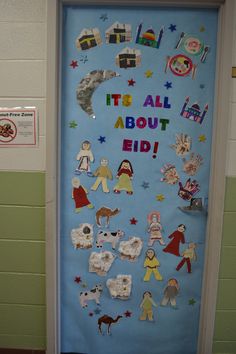“Practice what you Preach”
In public school education we create a culture by using ceremonies and celebrations that we honor. School ceremonies such as Halloween, Thanksgiving, Christmas Break (often called “Winter Break” now), and Easter Break are the main ones we practice. We often celebrate these events with a class party or a few activities and lessons that get our students in the “spirit” of the tradition we are celebrating. How and what we celebrate is all a part of schooling and an aspect to the “hidden curriculum” that education instills in children. I am not against honoring these traditions. But I teach in a multicultural city and at this point, maybe half of my students “celebrate” these festivities at school but not at home. So I often ponder the implications of these rituals on our young impressionable minds.
I want to reiterate – I am not against celebrations. But I do have a slight issue with promoting a particular type of linear way of life when that lifestyle is not the reality for many students. The new wave of education preaches “tolerance, equity, and acceptance”. We talk about multiculturalism in Board-wide initiatives, on flyers, and when the situation calls for a politically correct response. But do we really practice what we preach?
“This is not a Muslim school, I don’t have any problems with anyone’s religion, but they came to this country and we do things a certain way in schools here so students are just going to have to deal with it,” a fellow teacher told me after I casually brought this issue up after a staff meeting. My retort was simple. I agreed that we were not a Muslim school but I asked him when “public school” became synonymous with “Christian school.” The conversation went on, he couldn’t see my argument for what it was and we ultimately agreed to disagree.
Many respond to this challenge through the progessive approach of having no celebrations at all in schools. Since “public” schools are for the public, and people come from all different creeds, backgrounds, and religious groups, the answer by many school boards has been to erase all “traditional” customs. Renaming “Christmas Break” to “Winter Break” is an example of this gesture towards politically correct erasure. But who are we kidding? We all know that Winter Break is for Christmas! Simply renaming something doesn’t change the implications it has on students; and the psyche of our students should always come first.
Christmas Break should be named Christmas Break. We should celebrate Easter at school. But in public schools we should also recognize Ramadan. We should celebrate Eid in our classrooms. Our schools should honor Buddhist and Taoist holidays. Not just with a simple announcement in the morning, (that half the school isn’t listening to anyways), but with activities and lessons akin to the ones we all use when Christmas rolls around every year.
Schools are a place for acceptance as they say. So schools should take tangible steps to represent their mission statements. The question I always ask myself when I hear about a new initiative or movement in education is, “Whom will it harm?” Does taking some time out to honor Ramadan or another culture’s tradition harm anyone? Is having a class party for Eid hurting anyone? I think we can assume that answer. Education is about fostering self-esteem, openness, and self-concept for students. Breaking away from the hidden scripts of schooling and recognizing alternative celebrations (especially when those traditions make up a significant portion of your student body) hurts no one. Instead, having school ceremonies that reflect all cultures only serves to validate more children and boost the way they look at themselves. And isn’t that what school is about anyways?
[share title=”Share this Post” facebook=”true” twitter=”true” google_plus=”true”]

